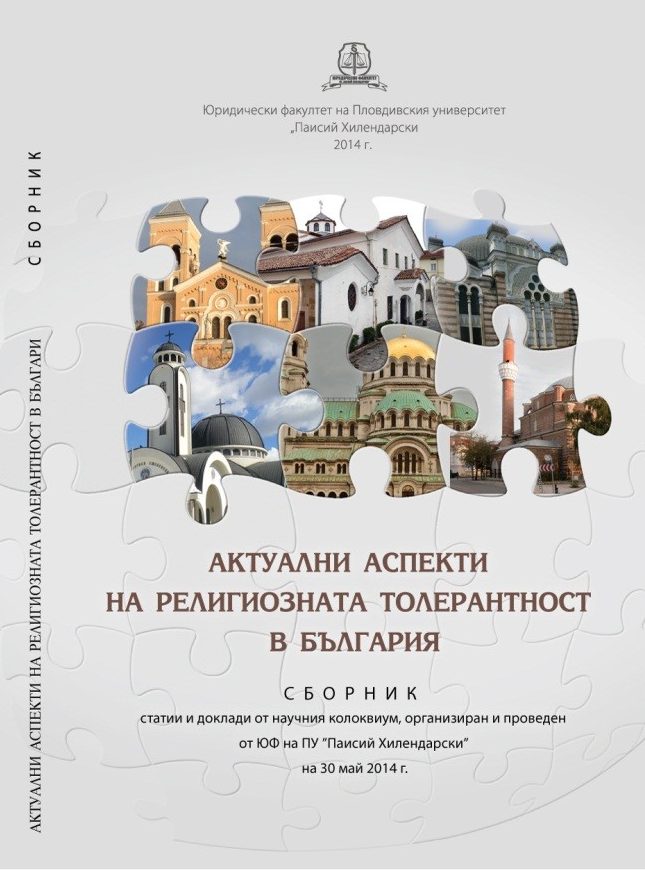Субективното право на религиозна свобода и въпросът за статуса на религиозните общности в практиката на Европейския съд по правата на човека
The Subjective Law of Religious Freedom and the Question of the Status of Religious Communities in the Practice of the European Court of Human Rights
Author(s): Dimitar Hanev
Subject(s): Law, Constitution, Jurisprudence, Human Rights and Humanitarian Law, Canon Law / Church Law, EU-Legislation
Published by: Пловдивски университет »Паисий Хилендарски«
Keywords: law; religious freedom; religious communities; European court of human rights
Summary/Abstract: Freedom of religion is one of the most fundamental rights of man, and as such, it is guaranteed by a number of international documents. It is also guaranteed by most of the constitutions of the modern democratic states. In addition, the national legislative systems of those states have special branches that regulate in details social relations, concerning religious beliefs and religious institutions. All this reveals the significance of the religion and religious matters in modern liberal-democratic societies. The events of the last few decades show that these issues aren’t outdated, but rather present even greater challenges to the established institutions and doctrines of the Western world. Freedom of religion is a substantial legal right playing an enormous role for the development of the legal systems for the protection of human rights throughout the world. From a legal-doctrinal point of view it is usually considered as a part of the well-established triad “freedom of thought, conscience and religion”. But in spite of the common elements of legal freedom, concerning the expression of inner convictions, freedom of religion exhibits features which shape it in a specific manner. They relate, primarily, to the diversity of the religious beliefs and the correlative ethnical and cultural aspects in a particular society. In such a frame the examination of the essence and limits of this right, as well as, its forms of realization, shall inevitably reveal much deeper layers of social and legal relations in those societies which claim to have adopted the technology of democracy and the ideology of the political liberalism. In this respect, there is hardly a better starting point than the case-law of the European Court of Human Rights.
- Page Range: 116-133
- Page Count: 18
- Publication Year: 2014
- Language: Bulgarian
- Content File-PDF

